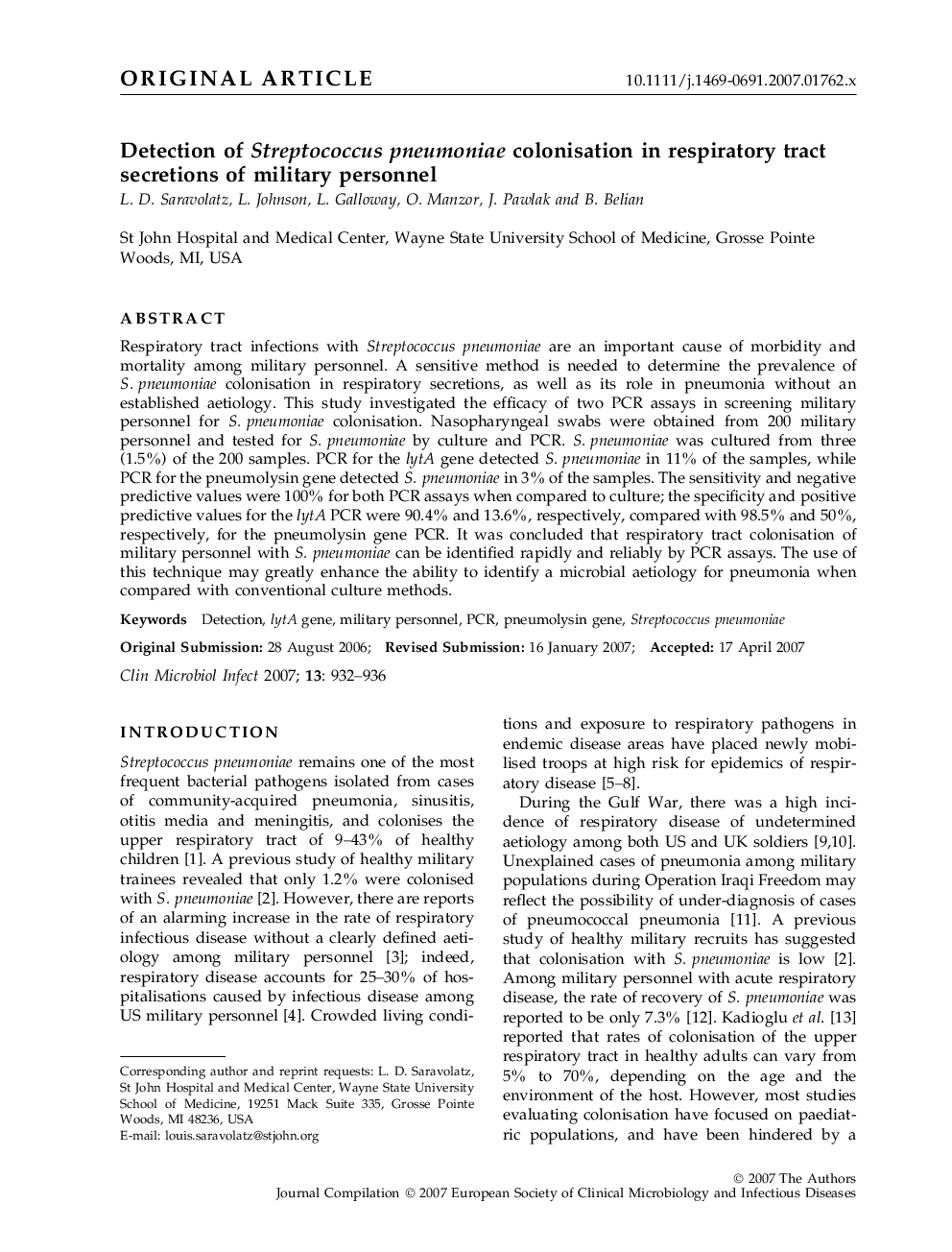| Article ID | Journal | Published Year | Pages | File Type |
|---|---|---|---|---|
| 6131358 | Clinical Microbiology and Infection | 2007 | 5 Pages |
Abstract
Respiratory tract infections with Streptococcus pneumoniae are an important cause of morbidity and mortality among military personnel. A sensitive method is needed to determine the prevalence of S. pneumoniae colonisation in respiratory secretions, as well as its role in pneumonia without an established aetiology. This study investigated the efficacy of two PCR assays in screening military personnel for S. pneumoniae colonisation. Nasopharyngeal swabs were obtained from 200 military personnel and tested for S. pneumoniae by culture and PCR. S. pneumoniae was cultured from three (1.5%) of the 200 samples. PCR for the lytA gene detected S. pneumoniae in 11% of the samples, while PCR for the pneumolysin gene detected S. pneumoniae in 3% of the samples. The sensitivity and negative predictive values were 100% for both PCR assays when compared to culture; the specificity and positive predictive values for the lytA PCR were 90.4% and 13.6%, respectively, compared with 98.5% and 50%, respectively, for the pneumolysin gene PCR. It was concluded that respiratory tract colonisation of military personnel with S. pneumoniae can be identified rapidly and reliably by PCR assays. The use of this technique may greatly enhance the ability to identify a microbial aetiology for pneumonia when compared with conventional culture methods.
Related Topics
Life Sciences
Immunology and Microbiology
Microbiology
Authors
L.D. Saravolatz, L. Johnson, L. Galloway, O. Manzor, J. Pawlak, B. Belian,
